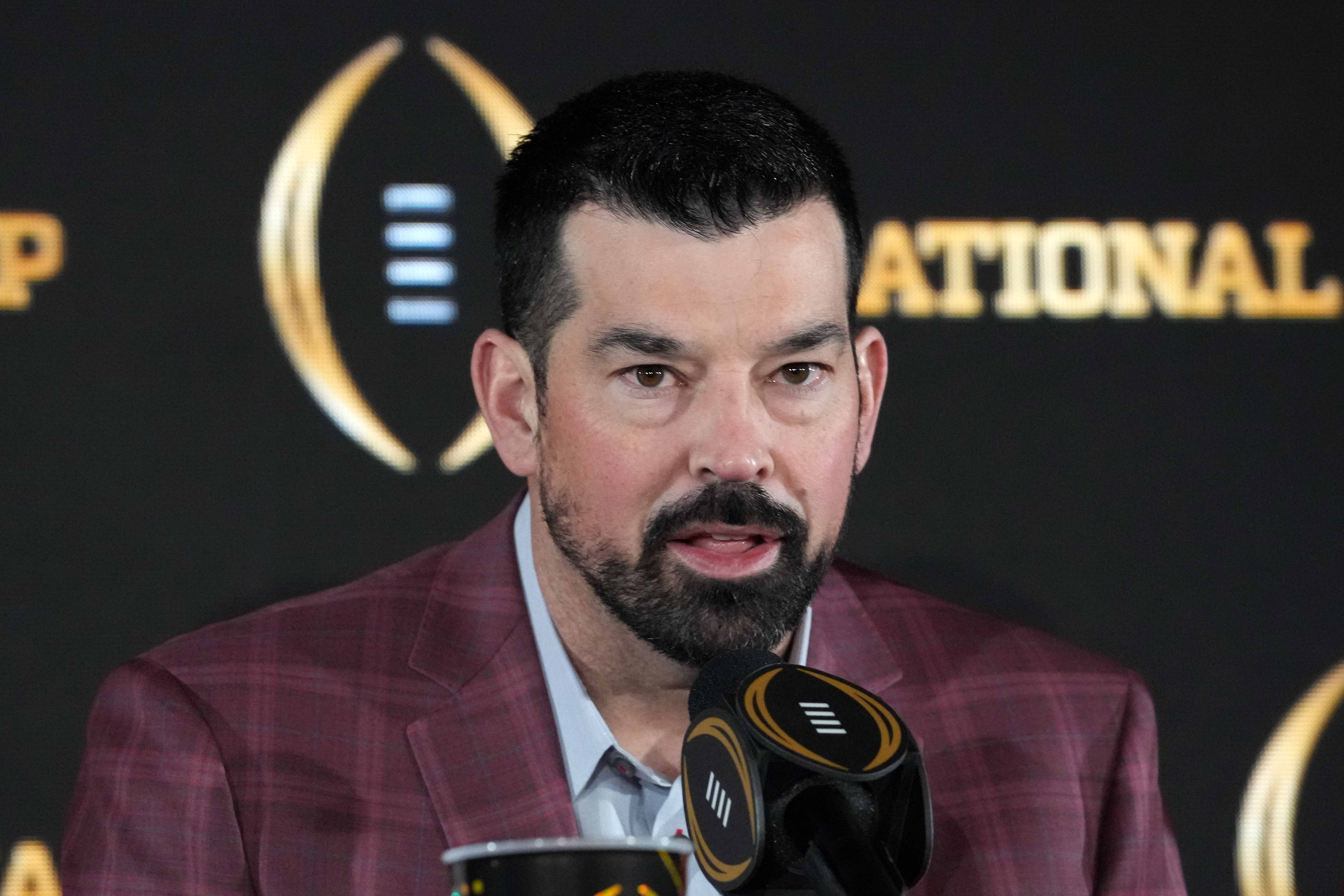
"You also have to value them": Ohio State HC Ryan Day reacts to the report of tampering as Jeremiah Smith and Carnell Tate receive outside offers
Ryan Day had the opportunity to address reports of tampering with his players on Friday. Reports that morning indicated Ohio State wide receivers Jeremiah Smith and Carnell Tate had received substantial financial offers from outside programs to entice them into the transfer portal.
Smith was said to have been offered an NIL deal worth around $4.5 million following his record-breaking season. Tate, meanwhile, reportedly received an offer in the range of $1 million.
In his appearance on the “Dan Patrick Show” on Friday, Ryan Day addressed the issue, noting that players must be valued.
“I think the first thing you have to do is bring in great people and great families, but you also have to value them and try to do everything you can to get what they deserve and what’s fair,” Day said.
“But there’s also something to be said for being around a program like ours, and you think if it’s all equal, we’ll have our chance to get our share of guys. But it is different, there’s no question. I think as coaches, we’re all looking for a little bit more guidelines on this. Everything is so gray right now.”
Ryan Day's Ohio State assembled its national championship-winning roster with a huge financial offer said to be worth $20 million. The program will need to continue its big spending to retain its top stars ahead of the 2025 college football season.
Ryan Day believes NIL enforcement is strained
During his appearance on the “Dan Patrick Show,” Ryan Day was asked by the host how outside programs can engage in tampering with players from another team’s roster before they have even entered the transfer portal. Day pointed to issues with NIL enforcement in college football.
“I think one of the big issues we have across the board in college football right now is enforcement,” Day said. “I mean, you know some of the stories of some of the things that have gone on just within the last couple of years or even in the past, but enforcement is really strained right now.
“So, until we start enforcing some of these rules, people can just call someone’s agent or someone’s parents and offer them a certain amount of money, and then it goes from there. That’s just part of it. There are so many other things that come into play.”
The concept of revenue sharing is set to take effect on July 1, enabling athletic departments to share certain amounts with their players. This, however, won’t stop booster-led NIL collectives from continuing to invest heavily in programs, leading to bigger spending for elite teams.